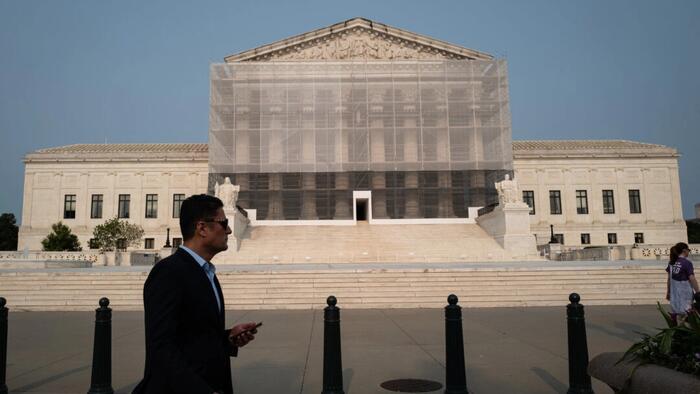


Authored by Matthew Vadum via The Epoch Times (emphasis ours),
A civil rights lawsuit filed on June 11 in federal court for the Eastern District of Tennessee claims that a program providing federal money to colleges and universities if Hispanic students make up at least 25 percent of the student body is unconstitutional.
The lawsuit was brought by the state of Tennessee and Students for Fair Admissions, a group whose lawsuit led the U.S. Supreme Court in 2023 to strike down the use of racial criteria in student admissions at institutions of higher learning in a case called Students for Fair Admissions v. Harvard College.
Wednesday’s complaint names the U.S. Department of Education and Education Secretary Linda McMahon as defendants.
The plaintiffs argue that the federal government’s Hispanic-Serving Institutions (HSI) grant program unconstitutionally discriminates based on race and ethnicity, according to the complaint.
The Education Department’s Hispanic-Serving Institutions Division provides “grant funding to institutions of higher education to assist with strengthening institutional programs, facilities, and services to expand the educational opportunities for Hispanic Americans and other underrepresented populations,” the Department of Education’s website states.
Congress appropriated $350.6 million for the program in fiscal 2024, education think tank New America reports.
The department may not discriminate on the basis of race or ethnicity, “even when Congress orders it to,” the complaint states.
Despite this, under the federal Higher Education Act the department allocates HSI program funding to colleges and universities only if they meet the “arbitrary ethnic threshold of 25 percent Hispanic” student enrollment, according to the complaint.
Tennessee operates a variety of colleges and universities, all of which serve Hispanic students and low-income students. “But not one of them qualifies to receive grants under the HSI program” because they don’t possess “the right mix of ethnicities on campus,” the complaint states.
“Funds should help needy students regardless of their immutable traits, and the denial of those funds harms students of all races,” according to the complaint.
In its current form, the program engages in “unconstitutional racial balancing” and operates outside the constitutional authority of Congress. The 25 percent minimum Hispanic enrollment provision functions as “a strict racial gatekeeper,” determining which schools may receive millions of dollars under the program, Students for Fair Admissions said in a statement.
Racial balancing is the practice of using race as a factor to seek proportional representation of racial groups in institutions such as schools. Even before its ruling in Students for Fair Admissions v. Harvard College, the Supreme Court held that racial balancing policies must be weighed under the strict scrutiny standard, which means they must advance a compelling governmental interest and be narrowly tailored.
Tennessee argues the HSI program presents its schools with an impossible choice: they must either forgo millions of dollars in federal grants or participate in illegal racial balancing in admissions so they can boost Hispanic enrollment. A new state law specifically forbids race-based preferences in education, so now state schools are “at risk of violating either state or federal law no matter which direction they turn,” the statement said.
Students for Fair Admissions president Edward Blum said the HSI program is unconstitutional because it conditions receipt of government money on a student body’s racial composition.
The Supreme Court determined in the 2023 ruling that such practices are “patently unconstitutional.”
“Discriminating against colleges, universities, faculty, and students based on race violates the fundamental principle of equal protection under the law,” Blum said in a statement.
The Epoch Times reached out to the Department of Education for comment. No reply was received by publication time.
